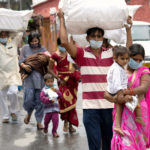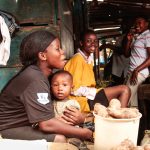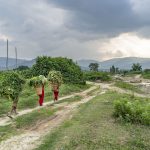On March 24 2020, the Indian government announced a nationwide lockdown to slow the spread of COVID-19. Implemented with just four hours’ notice, the lockdown forced millions of suddenly out-of-work migrants to return to their villages –often by foot over long distances. How can migrant-sending states support labor market opportunities for migrants without compromising COVID…
Labour Markets
Assessing the Impact of the Shock on the Most Vulnerable
The COVID-19 pandemic poses a particular challenge for low-income and fragile countries, as well as vulnerable groups, particularly women. Our Sudan Labor Market Panel Survey (SLMPS) 2020 project, with planned data collection starting in August/September 2020, has benefited from support from the GLM | LIC project. The study proposes additional data collection and research on…
Assessing the Labour Market Impact of COVID-19 on Women with Young Children in Egypt
Women with young children are doubly challenged by the pandemic. Disproportionately responsible for caregiving, yet faced with the loss of child care options in light of the pandemic and lockdowns, they will face particular difficulties in retaining or gaining work and may face increased stress and pressures within the household. These women are already the…
What Can Online Vacancies Tell Us About Labour Market Conditions in Lower-Income Countries? Evidence from India
Over the last decade, the rapid diffusion of internet technologies in lower-income countries has changed how employers and workers interact in the labor market. While the initial boom in online recruitment focused on higher-wage occupations, there now exist online search and matching services for lower-wage occupations, from domestic work to entry-level retail jobs. Harnessing these…
Characterizing Urban Labour Market Effects of COVID and Speeding Recovery Through a Job Search Platform
The COVID-19 crisis has triggered unemployment worldwide. In developing countries, the effects are expected to be large (Mubarak and Howell 2020; Saleh and Cash 2020; Dingel and Neiman 2020); however, better data is needed to understand (1) who is most affected; (2) which job losses are expected to be temporary versus permanent, and (3) how…
Differential Earnings, Household Division of Labour and Fertility Choices: An Application of the “Doing Gender” Hypothesis in Ghana
The project aims to examine the evidence for the “Doing Gender” hypothesis in Ghana. We examine whether greater earnings by Ghanaian women is associated with increased household bargaining power, proxied by the division of housework between a woman and her husband. The study is relevant as the issue of the division of domestic work has…
Overcoming Constraints to Female Labour Force Entry
We propose a randomised controlled trial to test the impact of two low-cost interventions to overcome psychological and information constraints to female labor force participation (FLFP). Our research questions are, does (i) motivating female students and (ii) providing information about the job market, promote female labor force entry, as measured by their likelihood of applying…
Seasonal Migration and Agricultural Labour Markets in Nepal
In rural agrarian economies, the period between planting and harvest is often a “lean season” when labor demand and wages fall, and the price of staples rise. The landless poor reliant on agricultural work on others’ farms are especially hard hit, and many millions of laborers and their families worldwide suffer from seasonal hunger. This…
Urban Density and Labour Markets
Many of the world‘s poorest people live and work in dense informal settlements in Africa’s growing megacities. These communities have both positives and negatives. On one side, settlements, often located in central areas, provide workers with access to geographically proximate jobs, dense informational and social networks, and a large demand base for entrepreneurial ventures. Density…
Impacts of Microfranchising on Young Women’s Occupational Choices
Youth underemployment is a major challenge facing developing nations, particularly in Africa (Filmer and Fox 2014). Young people are more likely to be unemployed than older adults (Kluve et al. 2016). In low-income countries, unemployment figures also typically underestimate the proportion of youths who cannot find productive jobs (Fares et al. 2006). After leaving school,…









